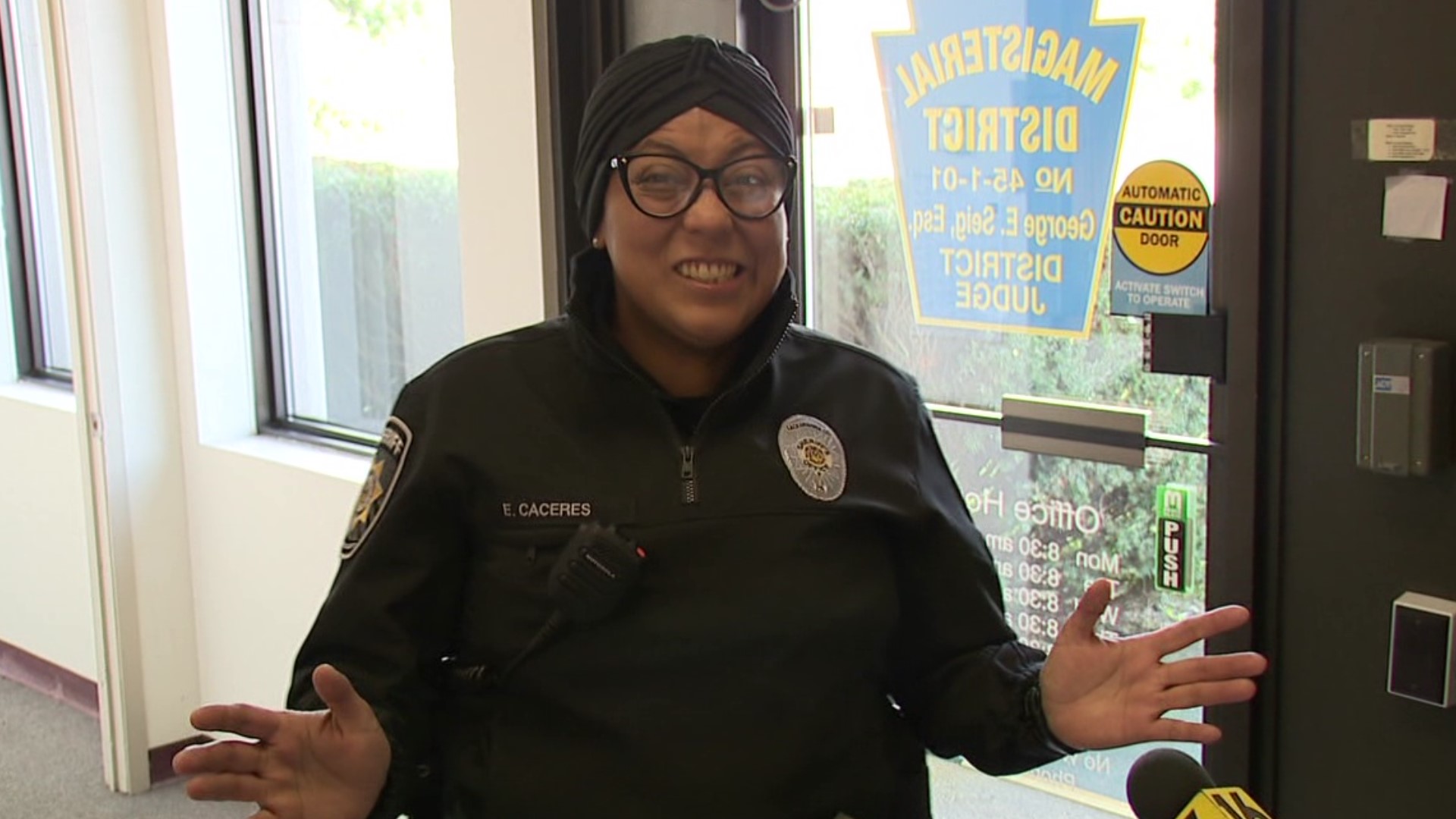SCRANTON, Pa. — >>> Lee esta noticia en Español <<<
Sheriff's Deputy Liz Caceres greets people inside Magistrate Seig's office in Old Forge in English or Spanish.
Dep. Caceres is one of several Lackawanna County deputies who are bilingual. Caceres says she meets people every day whose first language is not English, which can be stressful, especially in a legal situation.
"I'll step in. I'll talk to them, interpret everything, and I act like the middle person," said Dep. Caceres.
The Hispanic population is larger in cities like Scranton and growing in other places like Carbondale, where Caceres is also an officer. She is often called to assist other officers or deputies in Lackawanna County when there is a language barrier.
Caceres believes having a bilingual officer translate in person during a high-stress situation is a good thing instead of relying on a translation over the phone or using an app.
"As a police officer on scene, I can be like, 'This is what's going on, this is what it is.' There's a major difference, but I'm not saying it doesn't help out, but if they need it, then you use it. Whatever tools you have, is what we use."
Caceres knows firsthand the frustration of people who don't speak English and can't communicate. Her parents came to the United States from Peru.
"When they first came, they also had a language barrier, so my parents had to learn the language, learn English. They have heavy accents, but they still communicate in English, and English is my second language. When I first started preschool, I only spoke Spanish."
Caceres says she loves helping people, and that's why she took a job in law enforcement. She didn't realize knowing two languages would mean so much to others.
"Everyone's happy. At the end, they're like, 'OK, thank you! God bless! OK, bye!' And they leave, which is good."
Helping the Hispanic community has the added bonus of representing her roots and heritage. Officer Caceres hopes people take an opportunity to make the world more inclusive, whether their first language is English or Spanish.
"Try your best to communicate. You're going to learn one way or another. 'Please, thank you, have a nice day,' just enough for you to get by. Even if you're struggling, it doesn't matter; just make the effort."
Hispanic Heritage Month begins Sept. 15 and ends Oct. 15. Sept. 15 is the independence day for five countries in Central America.
Congress passed a bill to authorize and request the president issue an annual proclamation designating the week that includes Sept. 15 and 16 as National Hispanic Heritage Week, the Library of Congress says.
Costa Rica, El Salvador, Guatemala, Honduras, and Nicaragua are the five Central American countries that celebrate their independence days on the 15th, the Library of Congress says. Mexico celebrates its independence day the next day, on the 16th.

